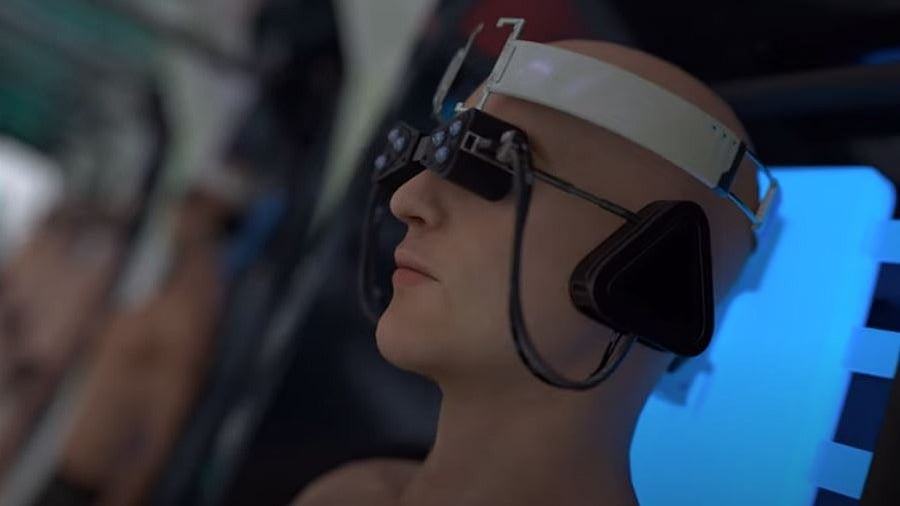
Screengrab of a video showing the Cognify concept.
Credit: YouTube/Hashem Al-Ghaili
Prison systems globally are still arguably archaic, but a Berlin-based filmmaker and science communicator is looking to change that into a bit more of A Clockwork Orange-esque system.
Like Alex DeLarge in the Stanley Kubrick movie, who is made to watch films portraying murder, rape, and torture, the new prison concept—Cognify—seeks to make criminals feel the emotional effects of their crimes from the perspective of their victims, reports Science Times, albeit in a more humane way.
Conceptualised and developed by Hashem Al-Ghaili, Cognify consists of a virtual reality (VR) gadget that showcases AI-generated videos of crimes, while a brain implant linked to the device causes the individual to experience emotions such as guilt and regret.
These AI-generated, fabricated visuals of crimes reportedly will be so detailed that the offender, aided by the brain implant, will be forced to confront the emotional effects of their crimes, making them less likely to commit offences in future.
How does it work?
The approach adopted by Cognify involves using high-resolution brain scans to make accurate maps of the neural pathways of prisoners. These maps are then used to target several regions of the brain, including those that control memory, thinking, and logical thoughts.
Using this approach, the Cognify device can ensure that implanted 'memories' (or visuals of crimes) are integrated seamlessly into the brain's neural networks, thereby giving a prisoner a very real experience of the effects of their crimes, like the effect on a victim's mind and body.
While these rehabiltation meetings—involving the feeding of AI-generated crime clips to a prisoner—are intended to last only a few minutes in real-time, they are meant to feel like years to a prisoner, an effect that is achieved by altering the way a prisoner perceives time.
Further, these 'memories' can also be altered to fit the requirements of each prisoner's rehabilitation programme, depening on how evil their crime was.
As prisoners undergo these intense rehabilitation programmes. a central computer will record information that will help researchers understand the motivation behind their crimes, and what, in general, motivates a person to commit crimes.
'Prison of the Future'
Dubbed the 'Prison of the Future', Cognify, Al-Ghaili believes, will significantly reduce the requirement for long-term prison sentences as prisoners can be rehabilitated within minutes.
By extension, the requirement for traditional prisons and their associated costs (real-estate, staffing, security, maintenance, food, medical care etc.) would come down, and in the long-run, the criminal justice system would make significant savings.
Ethical concerns
At the time of writing this, Cognify still remains a concept and will require considerable ethical scrutiny before it can be realised.
While it promises to be an 'efficient' system to rehabilitate prisoners, questions surrounding the effects of the AI-generated visuals on the minds of prisoners is something that needs serious attention.
Whether a person can also be subjected to rehabilitation that 'feels like years' is also an ethical conundrum that needs attention.
